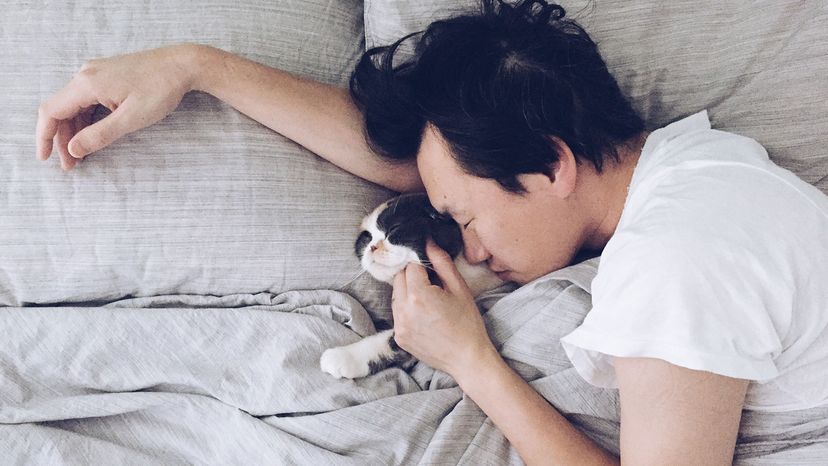
Good news for people who use their days off as they're intended — to rest up after a busy week. It turns out those compensatory ZZZ's are far more beneficial than previously thought, according to a Swedish study published in an April 2018 issue of the Journal of Sleep Research.
The study looked at more than 43,000 people who participated in the Swedish National March Cohort, which began in 1997. Follow-up for each subject continued until they died, moved away or Dec. 31, 2010, when the study officially closed. The researchers for the sleep study pulled relevant data from the cohort questionnaire about basic sleep habits, like how many hours approximately participants sleep on a weekday/workday night, as well as how many hours they snooze per night on days off work. Response increments ranged from less than five hours to greater than nine hours.
Advertisement
Previous studies have shown that people who consistently sleep too little (short sleep is defined as five or less hours a night) or too much (long sleep is nine or more hours per night) have higher mortality rates than people who get just the right amount of sleep every night. However, the authors of this study point out that few, if any studies ask participants to differentiate between weekday and weekend sleep, which makes a big difference.
"Because there are 5 weekdays and 2 weekend days, it is likely that self-reports of typical sleep duration more strongly reflect weekday sleep. Thus, it is of interest to investigate the relationship between weekend sleep duration and mortality, as well as the different patterns of sleep duration between weekday and weekend sleep," they write in the study.
When the researchers looked at all the data, findings were consistent with previous conclusions of increased mortality if both weekday and weekend sleep are short, or when both are long. "However, when weekend sleep is extended after short weekday sleep no association with mortality is seen," they write. "We suggest that this may reflect positive effects of compensatory sleep."
Experts have long advised people to get up at the same time each day, even on weekends, as a long-term strategy for getting better sleep each night. The theory is that yo-yo sleep habits disturb the circadian rhythms. So while this new study is great news for those of us who like to sleep in on days off, many sleep experts say more studies need to be done on this subject.
"The real question is whether there is, in fact, a build-up of deficit, or biological changes that are gradual over time, even though you get recovery sleep," Dr. David Dinges, chief of the division of sleep and chronobiology at the University of Pennsylvania Perelman School of Medicine told Time. He was not involved in this sleep study.
Advertisement
